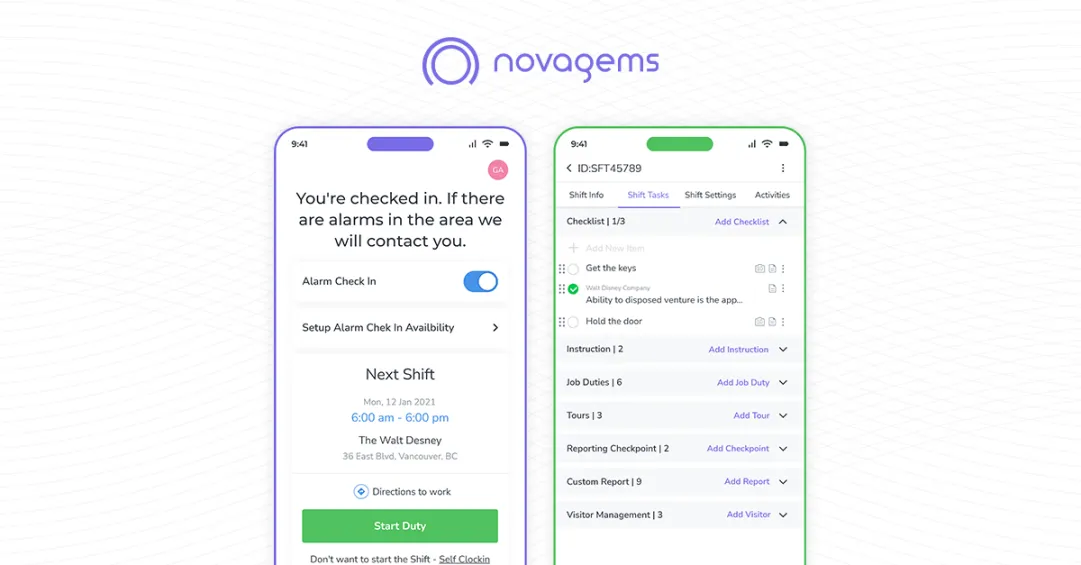5 Lessons In Management To Learn From The Security Industry
Fri, Sep 11, 2020
Read in 6 minutes

From implementing guard tour systems to ensuring optimum utilization of resources, the security industry has many secrets of effective management. Ensuring top-notch security at the client’s premises by effectively managing the workforce and unleashing the potential of every security guard in the team demands a lot of planning and effective execution. A perfect security service model offers numerous management lessons that other businesses from a range of business verticals can learn and implement.
If you aim to achieve greater profitability and the right grounds to expand your business, you must learn the following management lessons from the security industry:
1. Problem Solving Planner:
What if we tell you that you can solve all your queries while you are on-the-go? Yes! You heard it right. Every business owner plans well in advance to tackle all the problems and dedicates a range of resources to tackle them. The security industry relies on planning beforehand to eliminate problems in the first place. However, to solve the problems in real-time is even more important therefore, the Security Specialists are using Mobile Apps to glance at their sites while they are boarding a plane or driving a car.
Security operations demand quick decision-making. Managers should hone their ability to prioritize tasks and manage time effectively to achieve organizational goals efficiently. Set an example by solving personal security management problems.
2. Real- time Chat for efficiency:
Security operations depend on clear and concise communication. Managers can learn the importance of transparent communication, both vertically and horizontally, to ensure everyone understands
- goals,
- responsibilities, and
- any changes in direction.
Security guards need to take care of their personal security management as well. They need to be prepared to take care of everything, be it any situation. A security lesson can be learnt anywhere. And security companies need to make sure that security guards are always updated.
3. Implement and monitor:
Implementation of policies or schedules followed by close monitoring is the key to successful outcomes. The best security guard companies use guard patrol monitoring software to track the movement of guards at the client sites. This ensures that the guards are performing their duties as assigned and not missing any critical checkpoints.
4. Evaluate and Reward:
Collecting performance data and evaluating it is imperative. Real-time data processing ensures that you have the right data available for evaluation in the set time limits. The reports are prepared timely and sent to the client and also for internal performance management purposes. According to the track record, a security guard can be rewarded for great performance or reprimanded for failing to perform.
5. Maintain transparency:
Transparency in operations and communications is the key to establishing a positive working culture. When the employees are educated about various processes and changes in advance, they get prepared to face the unknown. The majority of security industry players use workforce management tools for effective management. These tools can be accessed using various devices and the user access allows security guards to check their shifts, acknowledge them, apply to leave, manage working hours, and at the same time report incidents. Security industry has flourished with its emphasis on management and automation. Hope these management lessons help you learn and grow as a leading business in your vertical.
6. Data-Driven Decision Making:
Security professionals rely on data to assess threats and vulnerabilities. Managers should utilize data-driven insights to make informed decisions, optimize processes, and allocate resources effectively. Many security lessons can be learnt when you have the correct data available with you. Accurant data will help you drive better results and improve productivity easily.
How does it help?
- Enhanced Problem Solving
- Resource Optimization
- Continuous Improvement
- Objective Insights
At its core, data-driven decision making involves using data as the primary basis for making informed choices. This contrasts with decisions made solely based on intuition, anecdotal evidence, or assumptions. By analyzing patterns, trends, and insights from data, organizations can reduce uncertainty and make more precise, logical decisions.
7. Collaboration And Interdepartmental Cooperation:
Security operations require seamless collaboration among various departments. Managers should foster interdepartmental cooperation to enhance problem-solving and decision-making across the organization.
If an organization is facing security management issues that can be easily cleared with proper collaboration. A security guard which is patrolling the area needs to be connected with different departments across the organization. In case of an emergency situation, he needs to make multiple decisions at once. He needs to diffuse the situation and send a response as well.
That is where collaboration and interdepartmental coordination helps. That’s another security lesson that can be learnt by the security industry.
8. Resource Allocation:
Security teams allocate resources based on the most significant risks. Managers can apply this approach by allocating resources where they’ll have the most impact on the organization’s goals. We know that security lessons can be learned while the security guards are patrolling the area, but only security guards are not the ones who need to be educated all the time. If due to some reason the security guard is unable to perform his duties or reach the shift on time, the managers must be able to get an instant employee replacement for the security guards.
This helps in keeping the balance so that no staff is overwhelmed due to shortage of staff. Personal security management is essential in house for the security organizations. Resource allocation is a fundamental aspect of management and is crucial for optimizing efficiency, productivity, and overall organizational success.
9. Data-Driven Approach:
Security decisions are often based on data and analysis. Managers can adopt data-driven decision-making to enhance their strategies and outcomes. This approach prioritizes the use of data to guide actions and strategies, rather than relying solely on intuition or assumptions. It is widely used across various fields, including business, science, healthcare, and more, to enhance the accuracy, effectiveness, and objectivity of decision-making processes.
Security organizations need to evaluate their own operations as well if they want to provide their services to the top clients. Client satisfaction is very important in the security industry as the potential customers have a lot of options to choose from. Security professionals make critical decisions swiftly. Managers can learn to make sound decisions under pressure by gathering information, evaluating options, and considering potential outcomes.
10. Crisis Management:
Security teams are adept at managing crises effectively. Managers can prepare for crises by having contingency plans and clear protocols in place. Personal security management comes in handy when security guards need to make quick decisions to deescalate the situation.
Crises can take various forms, including natural disasters, accidents, cybersecurity breaches, financial downturns, public relations disasters, and more. Effective crisis management involves a structured approach to mitigate the impact of the crisis and restore normal operations as quickly as possible.
Conclusion
By adopting these lessons from the security industry, managers can enhance their leadership skills, improve team performance, and navigate challenges more effectively. Security is not just about handling the security guards but at some level personal security management as well. There are many management lessons that can be learnt from the security industry. Physical security management is critical as the safety and security of the clients depend on it.
Get a Free Trial
Sign up For Newsletter
Latest Blog Posts
Get Started
Start being productive & grow your business
with Novagems




